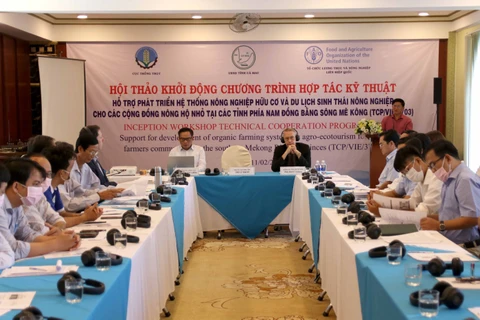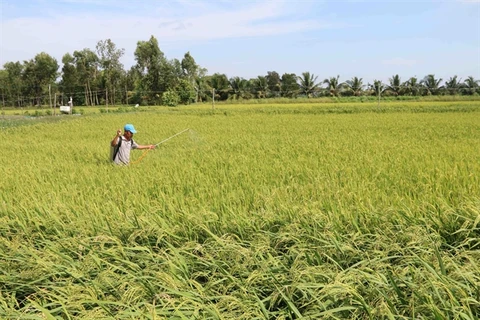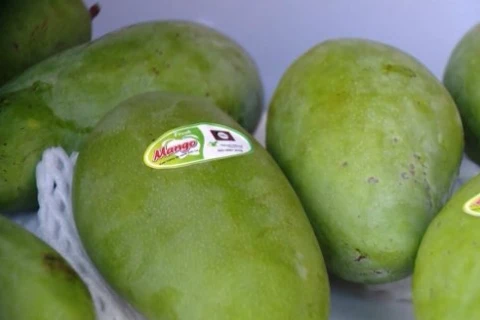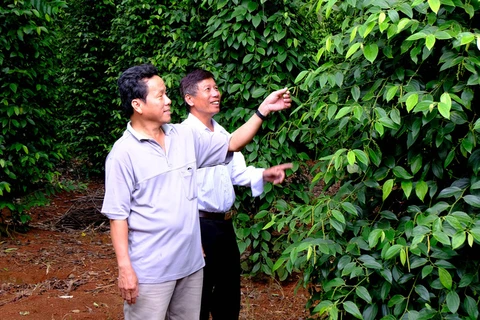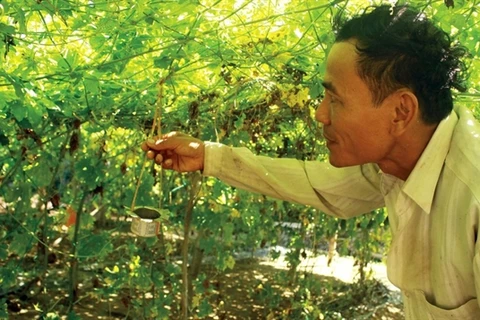HCM City (VNA) - Demand for organic products has been rising sharply globally including in Vietnam, and this is good news for businesses investing in them, according to the Ministry of Agriculture and Rural Development.
Deputy Minister of Agriculture and Rural Development Tran Thanh Nam said the area under organic crops in the country had increased from 53,350ha in 2016 to 237,693ha last year and they are grown in 46 out of 63 provinces and cities.
They had been exported to 180 countries and territories including the US, the EU, China, Japan, Germany, the UK, the Republic of Korea, Russia, and Singapore, and annual shipments are worth 335 million USD, he told a seminar in HCM City on October 26.
But Ha Phuc Mich, Chairman of the Vietnam Organic Agriculture Association, said the rapid growth in organic agriculture was also causing concern about the ability to control quality.
While the country had standards for organic farming TCVN11041: 2017/2018, the list of inputs allowed to be used had not been issued, he said.
"There are many co-operatives and enterprises that want to enter the field but are stymied by this."
Sharing his experience in producing and exporting organic produce, Thai Nhu Hiep, Director of Vinh Hiep Co., Ltd, said: “Organic agricultural products are favoured by global consumers and will be an inevitable requirement for making agriculture sustainable, but organic production in our country faces many difficulties.
“The cost of analysis of samples and evaluation to grant organic certification is high. It usually takes two to three years or even longer to fully meet the requirements, while the validity of the certification is only one year, and producers must routinely apply for reassessment.”
His company has faced difficulties in expanding the scale of organic farming because productivity and yields are not high, farmers do not have the habit of taking notes about their daily farming activities and their knowledge about organic production remains low.
Inputs such as fertilisers that can be used in organic production are still not widely available and are expensive.
“To sustainably develop organic agriculture, it is necessary to apprise farmers, businesses and consulting officials about standards through seminars, workshops and training courses.
“The Government needs to strengthen promotion of organic produce … domestically and globally.
“Creating domestic organisations for analysing and certifying organic production is imperative to reduce costs.”
Nam said development of organic agriculture was part of plans to restructure the agricultural sector to increase value added and make it sustainable.
So organic agriculture was being actively developed in 2020-30 with targets of having 1.5-2 percent of all agricultural lands under organic farming by 2025 and 2.5-3 percent by 2030, he said.
To accomplish these objectives there would be incentives for businesses and co-operatives to participate in organic production and training to improve knowledge about organic farming, he said.
There would be efforts to improve the professional capacity of local certifying organisations, he added./.
VNA

